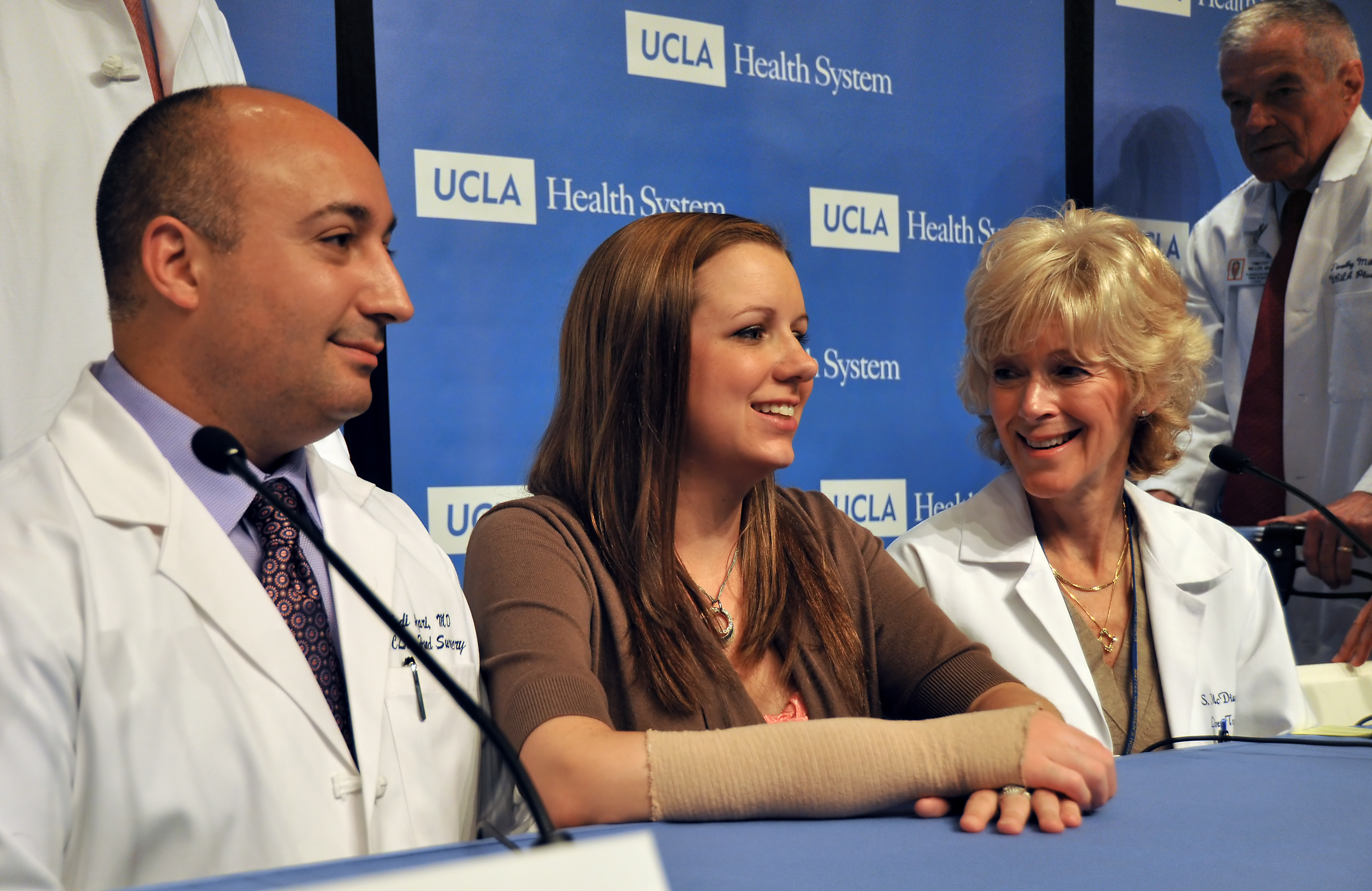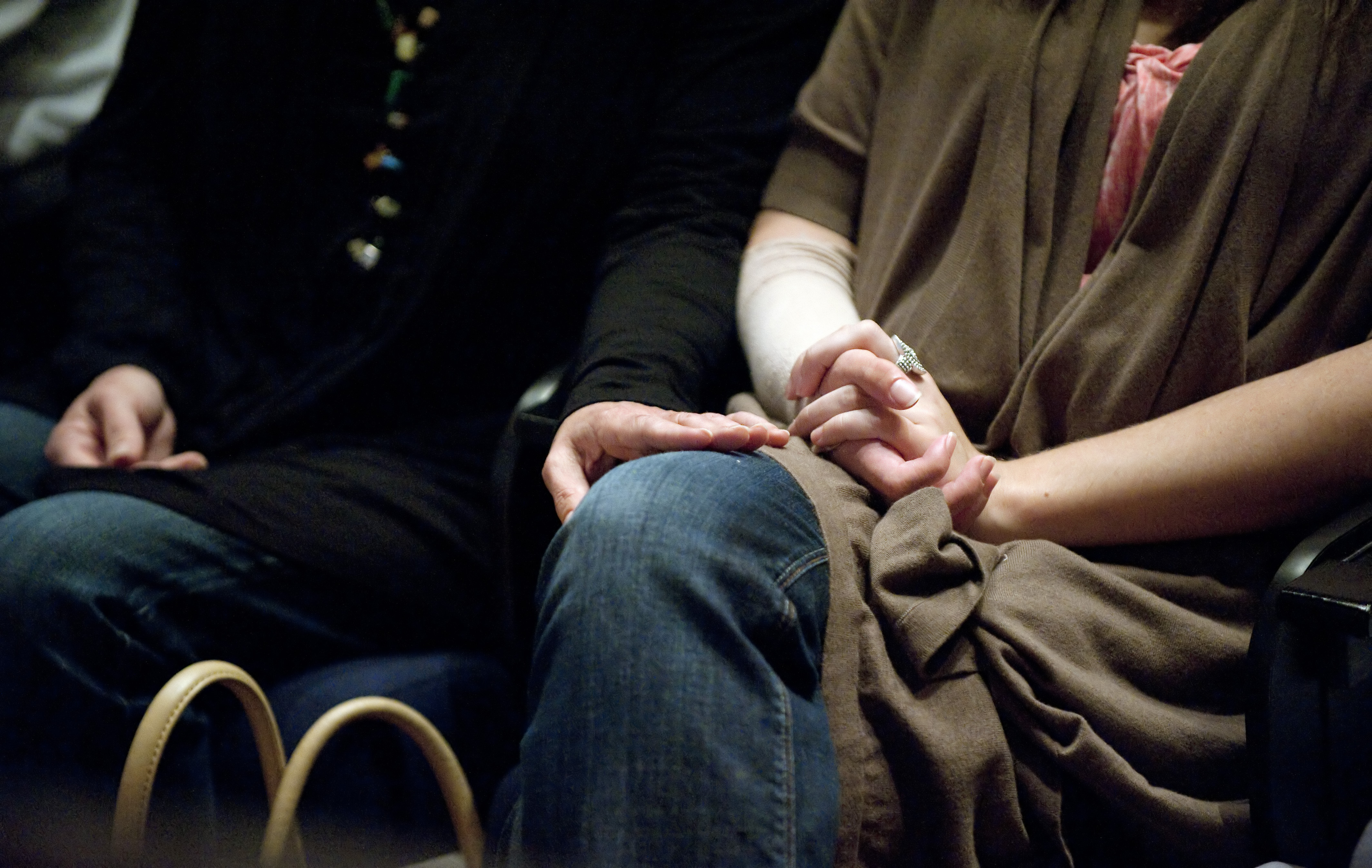
Lead surgeon Dr. Kodi Azari (left), hand transplant recipient Emily Fennell (middle) and medical director of the UCLA Hand Transplantation Program Dr. Sue McDiarmid speak at a press conference at the Ronald Reagan UCLA Medical Center Tuesday.
Emily Fennell can type 45 words per minute with her left hand.
The single, working mother can also cook, clean and drive to work. But up until last month, Fennell could not hold her 6-year-old daughter with both hands.
Fennell received the first hand transplant on the West Coast at the Ronald Reagan UCLA Medical Center last month.
She was introduced to the public for the first time at the hospital Tuesday.
“It has been surreal to see that I have a hand again,” Fennell said at a press conference at the medical center Tuesday. “My daughter has never known me with two hands.”
Fennell lost her right hand in a car accident in June 2006. She experimented with a prosthetic hand, but ultimately stopped after realizing it did not fulfill her needs.
She began looking into hand transplant programs over a year ago and expressed interest in UCLA.
On March 4, a hand from a deceased donor that matched Emily’s size and skin color was identified by Lifesharing, an organ and tissue recovery organization in Southern California. Under the direction of Dr. Kodi Azari, a team of 17 surgeons, anesthesiologists, nurses and technicians performed the complicated process of connecting tendons, blood vessels and nerves.
The overnight procedure began shortly before midnight on March 4 and was completed 14 hours later. The procedure required over one year of planning, said Dr. Ronald Busuttil, executive chairman of the UCLA Department of Surgery.
The UCLA Hand Transplantation Program is still in an experimental phase. Fennell’s surgery was part of an ongoing clinical trial aimed at assessing the success of hand transplantation surgical techniques.
The hand transplant was only the 13th in the U.S. and the first west of the Rockies, Busuttil said.
Fennell was discharged from the hospital on April 8. Currently, she undergoes four to five hours of rehabilitation five days a week.
“So far, I can wiggle my fingers, and after an hour of hand therapy, I can pick up small objects,” Fennell said, adding that she will be unable to feel sensation in her right hand for another year.
Receiving a hand transplantation is not without risks, said Dr. Sue McDiarmid, medical director of the UCLA Hand Transplantation Program. Fennell must undergo a strict regimen of immunosuppressive drugs to prevent her body from rejecting the hand, and she remains under close monitoring by the transplant team.
However, Fennell said the opportunity to make herself whole again outweighs the risks of immunosuppressants.
“Emily is an example of the will to overcome,” McDiarmid said.
McDiarmid recognized Fennell’s initiative to research transplantation options and her perseverance throughout the process.
Fennell works as a human resources office assistant in Ventura County. To obtain her position she needed to satisfy a requirement of typing at least 40 words per minute.
But Fennell was unable to advance to the next level of typing 50 words per minute. She has experienced some difficulty in supporting her daughter alone and consequently lives with her father.
With regained use of her right hand, she hopes to eventually advance her career.
And as a result of her experience, Fennell said a position in the medical field is not out of question.
